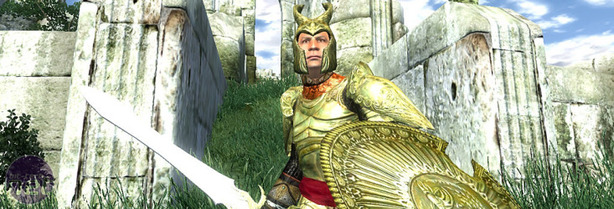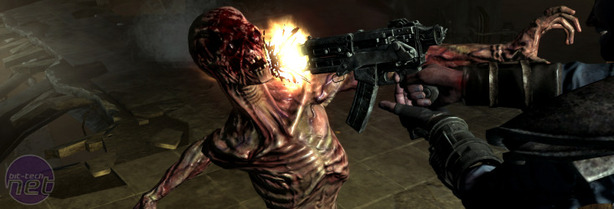
+10 Experience
Another problem which crops up in games that are heavy on the levelling is that of asynchronous levels. Killing Floor for example has quite an entertaining level system, albeit an optional one.However, if you find yourself a few levels behind your friends the game goes significantly pear shaped. Either you play on your difficulty setting and your higher level friends slaughter all with impunity, or you find yourself at a huge disadvantage with weaker, more expensive, guns.
Borderlands takes this disparity up to eleven by making the game more about the stats on weapons than their precise and effective use; unless your character is similar in level to that of your mates you’ll either be either completely ineffective or absolutely Godzilla. You can catch up from a lower level reasonably easily, it’s true, but to call this process a chore would be a harsh insult to mowing the lawn and washing up.
Multiplayer problems are par for the course though and it’s arguable that multiplayer gaming is first and foremost a way to cause problems and only a means for two or more people to play a game together as an afterthought.
Where things get trickier is in single player games with heavy levelling mechanics. They generally work in one of two ways - either you level up and the game's content all levels up with you, an approach that players of Oblivion, Fallout 3 or Dragon Age: Origins will be familiar with, or the environment stays at a fixed level of ability while you progress.
This first approach has become the more popular, although both Oblivion and Fallout 3 can be modded to provide fixed level lists indicating that it's an area players find contentious. With content scaled to the level of your character you are, in theory, always going to be challenged. In practice though this does mean that after you've played the game you'll encounter wolves that could take down Godzilla and bandits toting the finest enchanted weapons in the land.
When some random robber who sleeps in an open sewer with a dead cat for a pillow suddenly has more hit points and special skills than the bosses you were killing a few hours ago the game's feel and believability suffers massively.
There's also the problem that by raising the power of the enemy in line with the power of the hero you render the point of actually levelling up moot. If you're always going to be balanced with your enemy, why try to get ahead? You can pelt through a level balanced RPG or really scrunt your way through it, and neither approach is any different - game designers might think levels are there to reward you, but in this scenario, there are no rewards to be had for all your hard work.
This problem can really manifest itself nastily in Oblivion and Fallout 3 if you happen to want to improve your characters non-combat skills only to find yourself bottom of the food chain because the game world expects you to have spent the points to turn yourself into Dirty Harry.

MSI MPG Velox 100R Chassis Review
October 14 2021 | 15:04











Want to comment? Please log in.